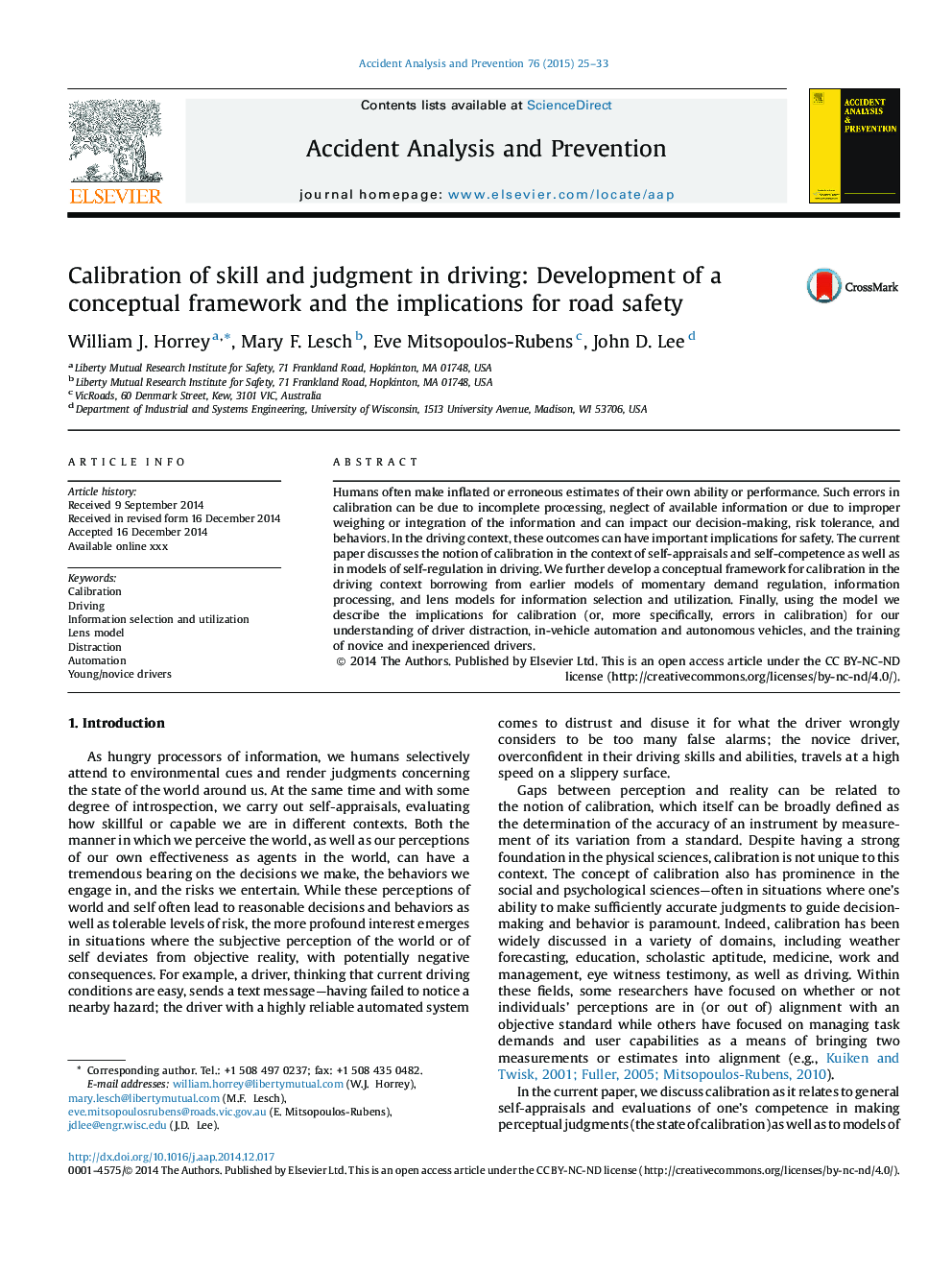| Article ID | Journal | Published Year | Pages | File Type |
|---|---|---|---|---|
| 6965700 | Accident Analysis & Prevention | 2015 | 9 Pages |
Abstract
Humans often make inflated or erroneous estimates of their own ability or performance. Such errors in calibration can be due to incomplete processing, neglect of available information or due to improper weighing or integration of the information and can impact our decision-making, risk tolerance, and behaviors. In the driving context, these outcomes can have important implications for safety. The current paper discusses the notion of calibration in the context of self-appraisals and self-competence as well as in models of self-regulation in driving. We further develop a conceptual framework for calibration in the driving context borrowing from earlier models of momentary demand regulation, information processing, and lens models for information selection and utilization. Finally, using the model we describe the implications for calibration (or, more specifically, errors in calibration) for our understanding of driver distraction, in-vehicle automation and autonomous vehicles, and the training of novice and inexperienced drivers.
Related Topics
Physical Sciences and Engineering
Chemical Engineering
Chemical Health and Safety
Authors
William J. Horrey, Mary F. Lesch, Eve Mitsopoulos-Rubens, John D. Lee,
